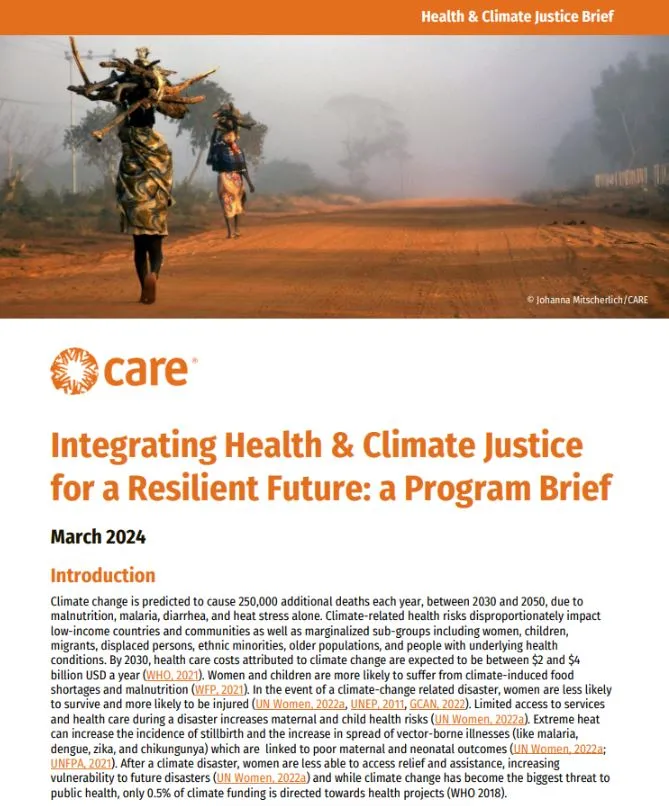
Climate change is projected to lead to 250,000 more deaths annually from 2030 to 2050 due to malnutrition, malaria, diarrhea, and heat stress. Low-income countries and marginalized groups like women, children, migrants, ethnic minorities, older people, and those with health issues are most vulnerable to these climate-related health risks.
For 2024 the Water+ team presents the Annual Innovation in Sanitation award to the CARE Zimbabwe Takunda team. The team has worked tirelessly to study and pilot innovative ways, through Human Centered Design, to increase access to toilets among the poorest and most vulnerable people in Zimbabwe. The Takunda team works with Latrine Builders, who are experienced masons, to promote sanitation and increase latrine coverage in the community, while also earning an income. Read more about the sanitation approach of Takunda in the brief below. Read More
This report shares case studies from six countries that detail how advocacy, partnerships, and tailored regulatory frameworks have fostered supportive legal environments for Savings Groups (SGs), promoting their growth, sustainability, and integration into formal financial systems while preserving their essential informality. Read More
Through CARE’s Her Money, Her Life Project, Bakari Shidafa, a husband and father in Tanzania’s Usambara highlands, has become a community advocate for gender equality and shared family responsibilities. Despite physical challenges, Bakari champions joint decision-making and women’s rights, encouraging an inclusive approach to family life and inspiring his village toward greater equity. Read More